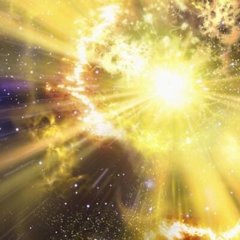-
Content count
209 -
Joined
-
Last visited
-
Days Won
3
About bradley
- Currently Viewing Topic: Don't worry be happy?
-
Rank
I know that I know nothing
Recent Profile Visitors
3,506 profile views
-
Maybe a little evil is okay... like I ate two donuts yesterday. There was this donut demon screaming in my ear and I embraced her, and I liked it... : ) There was nothing the broccoli deity could do to save me.
-
Has anyone seen come across any good/authoritative feng shui guides for the Year of the Fire Horse? (in Chinese is okay too). Did a google search cant find much, and half of them are contradictory. One says avoid bright light, the other says enhance bright lights. One says avoid south facing rooms, the other says activate the south...
-
i feel for you dude! honestly maybe try taking a break from all this stuff for a while. Thats what ive been doing--living life exactly as it is, trying to stay healthy, work hard, and avoiding too much time on the internet.
-
maybe its supposed to be a play on words, like the "Dude"-hha, but thats like just my opinion man.
-
i think your describing pleasure. pleasure and happiness are different things in my book. i think the concept is if you abstain from excessive pleasure seeking, thats when root happiness can take hold. when not seeking pleasure for its own sake, it can also amplifies the pleasurable experiences that do arise naturally. its not that you avoid pleasure, you just dont seek it for its own sake. try avoiding all sugar for a week and see what it does to your pallette...
-
my weird thought. karma is basically like time. its the force connecting one state of being in one moment to the next. maybe then karma is basically the force of gravity per relativity... just weird thought i had.
-

Loss of Emotion and Sensation - Major Blockage - Greatly Need Help
bradley replied to Listener's topic in General Discussion
cause of many emotional problems is dopamine imbalance--though easy to attribute to demons or something unworldly like that because it takes away your own personal responsibility in the matter. engaging in pleasurable stimulation exacerbates the downward cycle. the cycle is improved though abstinence and pain. Rigorous physical exercise is a good way to improve the cycle. Simple zen meditation too. Hard work too. Internet scrolling bad. -
Can I ask a question, so I am pretty happy and dont see "evil" running amuck in my own life, but when I think about some of the bad things that have happened in the past 200 years, it seems like there are sometimes these anti-karmic or dark-karma effects in the world. People undertaking "bad" actions many times (but not always) are the ones who accumulate more power, which only extends their ability to do undertake similarly "bad" actions. Most social systems do not reward morality. it seems like they mostly reward risk and aggression, and there is a feed back loop where when someone gains power they are more protected from consequences and and can better shape the rules in their favor. This amoral feedback loop is i guess is slightly different than karma. And, maybe these people do "get theirs" in the end and maybe they are deeply suffering individuals, but I don't think that's always true. Having worked at a large corporation, amorality seemed to be the rule for promotion, not the exception. So is there any validity to this kind of concept? Also, is evil the same as immorality?
-
I have to say, I am pretty happy in the world I live, and I don't think evil is running wild.
-
just picked this up.
-
Same in finnish: taivas. I once said to my neighbor in broken finnish something like "the sky is beautiful" and he got this weird look on his face. afterwards, i figured he probably thought I was talking about heaven.








